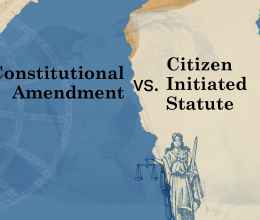Over four decades since President Nixon first declared a War on Drugs, the United States continues to struggle with rampant racial inequalities in sentencing people who use drugs. In order to have a system that treats all people equally and justly, we must retreat from the failed policies of the past and end the system of mass incarceration for people convicted of low-level drug offenses.
A Sordid Past
In the 1980s, there was a renewed effort to stop illegal drug use as part of the ongoing War on Drugs. This resulted in the passage of discriminatory drug laws that targeted African-Americans, which includes policies like the Anti-Drug Abuse Act of 1986, a law providing mandatory minimum sentences for the possession of certain drugs.
The Anti-Drug Abuse Act contained troubling sentencing disparities for crack cocaine, a drug used predominately by African-Americans, versus powder cocaine, a drug used predominately by Caucasians. It created penalties that were 100 times harsher for crack cocaine than for powder cocaine. Some would say the effects were exactly as the policy creators intended: in just a few years, the prison population skyrocketed, and from 1986 to 1996, the number of African-Americans in prison because of drug offenses increased 213 percent. The Anti-Drug Abuse Act, along with three-strikes laws, and other policies that followed, rapidly increased the number of people serving time for drug offenses. In total, during the peak of the government’s War on Drugs from 1980 to 1996, total drug convictions increased tenfold.
Persistent Effects
The War on Drugs has proven to be a massive failure that continues to devastate poor communities of color. Entire generations of African-American men have been removed from their families under biased laws like the Anti-Drug Abuse Act. Despite 2010 reforms of federal law, the crack/powder cocaine sentencing disparity is still 18:1. Today, more than ever, we have a prison system that does not accurately reflect the racial makeup of the country. Data released by the Ohio Department of Corrections in 2015 shows that African-Americans make up almost 47 percent of the prison population in Ohio, despite comprising only around 12.5 percent of the state population.
Read our report detailing Cuyahoga County’s failed War on Drugs: “Overcharging, Overspending, Overlooking: Cuyahoga County’s Costly War on Drugs.”
Furthermore, people convicted of drug offenses make up a big portion of Ohio’s overflowing prison population. In 2015, slightly more than 26 percent of commitments to Ohio’s prisons were for drug offenses, exceeding the number of commitments for sex offenses and burglary offenses combined—a sad reminder of our nation’s misdirected priorities.
Moving Out of the Shadow of the War on Drugs
What’s to be done about the mass criminalization of African-Americans for low-level drug offenses? Some may wonder, how can the government even begin to atone for the massive inequities perpetuated through the War on Drugs?
To start, the sentences of all those imprisoned under unjust drug policies should be pardoned. This is already being done to some extent. In March, President Obama commuted the sentences of 22 people who were imprisoned under outdated drug laws. Yesterday, the president commuted the sentences of 46 more individuals convicted of drug offenses.While this is a beginning, more pardons should be issued for the many individuals still imprisoned under racially biased and unjust laws.
Moving forward, it’s critical to implement alternative sentencing programs for people who are addicted to drugs. Harsh prison sentences do nothing to address the underlying causes of drug addiction or poverty. In Ohio, Senate Bill 15 is being proposed in the Ohio legislature for the 2015-2016 session. The proposed legislation would create a specialized drug addiction prison and expands Ohio’s Drug Court program, which offers treatment to drug offenders instead of prison time. Although questions remain about the transparency and fair implementation of SB 15, it’s a notable effort in trying to counteract some of the harmful policies from the War on Drugs.
Fundamentally, racially motivated mass incarceration is not the solution for our nation’s drug problem. It’s time to face the ongoing disturbing results of the War on Drugs in America and move forward in the hopes of erasing its legacy.
Kyra Schoonover is an intern at the ACLU of Ohio.







